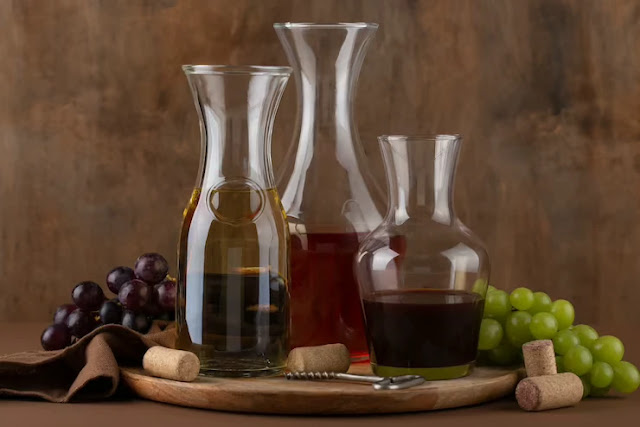Israeli Wine: A Comprehensive Guide
Wine has been made in Israel for 1000 years. The wines of this country come in diverse flavors and styles. An Israeli subscription box offers a selection of carefully curated wines. Here is a comprehensive guide to the wine produced in Israel.

Varieties of Israeli Wine
Cabernet Sauvignon
This classic red varietal ranges from light and fruity to full-bodied with complex tannins. Cabernet Sauvignon pairs well with steak, lamb, and hard cheeses like cheddar or Parmesan.
Merlot
Merlot grows to be less tannic than Cabernet Sauvignon. This wine is medium-bodied, with softer flavors and aromas. Enjoy Merlot with roasted vegetables, grilled chicken or fish, or creamy pasta dishes.
Shiraz (Syrah)
Shiraz is an intense red wine with bold flavors and aromas. It has significant tannin content. The taste of this wine develops complexity as it ages. Pair Shiraz with strongly flavored dishes such as beef short ribs or a duck confit.
Red Blend
Red blends can be enjoyed on their own or paired with most foods. This is because they can be made up of different varietals, such as Cabernet Sauvignon, Syrah, Grenache, and Carignan. These varietals can create unique flavor profiles that complement various cuisines.
Chardonnay
The flavor profile of chardonnay depends on how it was aged in oak barrels before bottling. This dry white varietal can have a varied flavor profile, ranging from tropical fruit and citrus notes to buttery oak nuances. Chardonnay goes well with seafood dishes like crab cakes or salmon. It also pairs nicely with lighter poultry dishes like chicken piccata or turkey tenderloin medallions.
Sauvignon Blanc
Sauvignon Blanc is a dry white wine with herbal aromas and crisp acidity. It pairs well with salads and other light fares like sushi rolls or grilled vegetable kebabs. Its bright acidity complements pairing with acidic ingredients such as tomatoes or lemons in Italian-style recipes like bruschetta or Caprese salad.
Regions Producing the Finest Wines
Galilee and Golan Heights Region
The Galilee and Golan Heights region is a picturesque part of Israel located near the border of Lebanon and Syria. This region produces some of the best-known Israeli wines, such as Barkan and Golan Heights Winery. This area has beautiful vineyards overlooking Lake Kinneret.
Judean Hills Region
The Judean Hills region is located south of Jerusalem near Tel Aviv. It has rolling hills and stunning landscapes. The unique climate here makes it ideal for growing grapes that produce full-bodied white wines with complex flavors.
Negev Region
The Negev region occupies most of southern Israel and includes areas near the Sinai Peninsula which borders Egypt and Jordan. This desert climate produces some notable reds, such as Binyamina Reserve Cabernet Sauvignon or Recanti Reserve Cabernet Sauvignon. These wines have won awards worldwide due to their bold flavor profiles and superior quality.
Galilee Mountains Region
The Galilee mountains region covers much of central Israel near Haifa bay on the Mediterranean sea coast. Here you can find white wines produced by wineries like Galil Mountain Winery or Dalton Galilee Mountain Appellation Chardonnay.
Tips for Enjoying Wine to the Maximum
Choosing the Right Wine
When choosing an Israeli wine, look at the type of grape used in each variety. Several different grapes are grown in Israel, such as Cabernet Sauvignon, Merlot, and Chardonnay. You may also want to consider what kind of food you're pairing your wine with. Certain wines work better with specific foods.
Serving the Wine
Serve your Israeli wine at the right temperature. Whites should be served chilled. Reds should be slightly cooler than room temperature.
Use the proper glassware. Use larger glasses for red wines and smaller glasses for whites to get the best aromas and flavors out of each variety. Give your wine enough breathing time before drinking. This can help open up the flavors to allow their complexities to shine.
Storing Your Wine
If there's any leftover wine from your bottle after enjoying it, store it properly. This will prevent it from going bad.
Red wines should be stored at room temperature in a dark place. They can open for longer than two days. The bottle should be re-corked if the wine hasn't been finished by then.
Whites benefit from being stored at low temperatures. They should also not be opened more than once without being finished off, as they tend not to age well over long periods.
Sign Up for an Israeli Subscription Box Today
Whether you're a seasoned sommelier or just beginning your journey into the wonderful world of wine, this guide can help you explore all Israel offers regarding their amazing selection of wines. Sign up for an Israeli subscription box and discover the rich and varied world of Israeli wine for yourself.

No comments